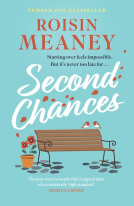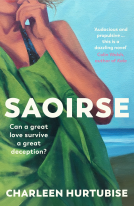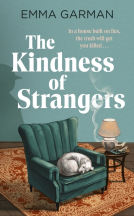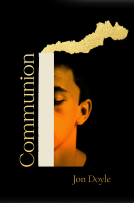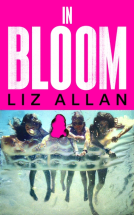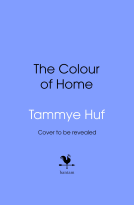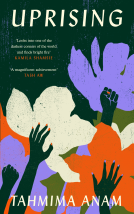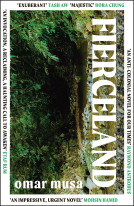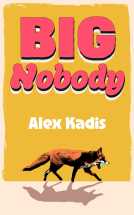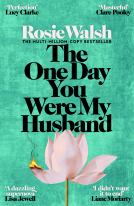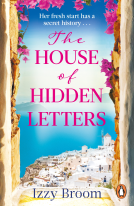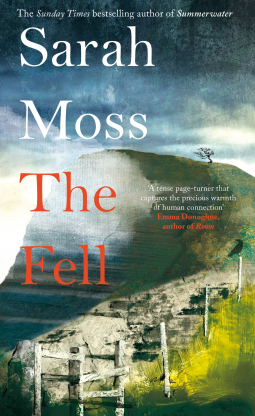
The Fell
by Sarah Moss
This title was previously available on NetGalley and is now archived.
Send NetGalley books directly to your Kindle or Kindle app
1
To read on a Kindle or Kindle app, please add kindle@netgalley.com as an approved email address to receive files in your Amazon account. Click here for step-by-step instructions.
2
Also find your Kindle email address within your Amazon account, and enter it here.
Pub Date 11 Nov 2021 | Archive Date 12 Nov 2021
Pan Macmillan | Picador
Talking about this book? Use #TheFell #NetGalley. More hashtag tips!
Description
Acclaimed author of Summerwater and Ghost Wall, Sarah Moss is back with a sharply observed, gripping novel for our times.
'A slim, tense page-turner that captures the weird melancholia of locked-down life but also the precious warmth of human connection. I gulped The Fell down in one sitting.' Emma Donoghue
At dusk on a November evening in 2020 a woman slips out of her garden gate and turns up the hill. Kate is in the middle of a two-week quarantine period, but she just can’t take it any more – the closeness of the air in her small house, the confinement. And anyway, the moor will be deserted at this time. Nobody need ever know.
But Kate’s neighbour Alice sees her leaving and Matt, Kate’s son, soon realizes she’s missing. And Kate, who planned only a quick solitary walk – a breath of open air – falls and badly injures herself. What began as a furtive walk has turned into a mountain rescue operation . . .
Unbearably suspenseful, witty and wise, The Fell asks probing questions about the place the world has become since March 2020, and the place it was before. This novel is a story about compassion and kindness and what we must do to survive; it is suspenseful, vivid and ultimately deeply moving.
‘One of the best writers at work in Britain today’ – Fiona Mozley, author of Elmet
‘One of our very best contemporary novelists’ – Independent
‘Moss is the most brilliant writer. She deserves to win all the prizes’ – Joanna Trollope
‘Moss’s star is firmly in the ascendant’ – Guardian
Available Editions
| EDITION | Other Format |
| ISBN | 9781529083224 |
| PRICE | £14.99 (GBP) |
| PAGES | 160 |
Average rating from 146 members
Featured Reviews
This the third Sarah Moss novel I've read (after "Ghost Wall" and "Summerwater") and I think this is my favourite. Now, this is a big deal. I am a HARD person to please. I was VERY, VERY dubious by the idea of reading a lockdown novel. I was sweating and squirming at the very thought! I'm already DREADING the "Lockdown Literature" classes that will be taught in universities in 2025 (assuming society still exists, etc. etc., insert anxious climate change disclaimer here).
I'd also just read the Sarah Hall lockdown novel "Burntcoat" before this one. I enjoyed the Sarah Hall one, but for what it's worth I liked this one better (not that these two incredibly gifted writers need to be compared, but as these are both lockdown novels, it's hard not to).
I like how Sarah Moss seems to be setting herself the task of writing novels 'about the moment' - so Brexit, COVID, etc - that aren't annoying or preachy. What I REALLY, REALLY liked about this book was the wry humour (I underlined SO many sentences I found really funny), and the fact that a lot of the narrators are well-rounded people. In general, I would call the tone of this book compassionate, non-judgemental, and understanding. Themes here that echo "Summerwater" in particular include the concept of neighbours and community, what genuine help means, empathy, and forgiveness. Also: death, and what it means to face it.
The plot follows a woman who goes for a hike even though she is supposed to be under lockdown, and the consequences that follow. We hear from her son, her neighbour, and a man whose identity would be a spoiler. Basically, the book is driven by interiority, by characters' thoughts and voices and interior monologue. She does free indirect discourse via third person really well.
It was interesting to read about elements of lockdown that already seem 'historical' to me - the obsession with wiping stuff down, for instance, which believe it or not my mother is still doing (love you, Mom!). Ugh, that scene where the guy opens the door with a plastic bag...!
My one critique is that I STRONGLY think the book should have ended on the next to last chapter. I initially read as the ending and I was STUNNED. My breath was taken AWAY. God, what a good ending! And then I turned the page and OH NO, there was another chapter that EXPLAINED AND CLARIFIED THINGS... I was not happy!
Overall, I think this book is yet another impressive contribution to what is turning out to be a stellar career. She is genuinely turning into a Gem of Modern British Literature. My gosh, she can write! I can only wish my lockdown was as productive as hers and Sarah Hall's *laughs bitter, bitter tears*...
Thanks to Netgalley and the publishers for the ARC.
I was drawn in by two things - Sarah Moss's excellent writing and a moody, atmospheric cover. Immediately it is clear we are reading a novel of the 2020 Covid pandemic, written during that time. Somebody had to, I thought, and for some reason expected to dislike the novel based on that fact alone. Yet, quickly, Sarah Moss sets up her characters, and lets a different kind of isolation take over their lives. Kate, the central character, is injured, alone in the fell, and her family struggle to find her. Very quickly this turns into a nail biter, full of thrilling imagery and wonderful prose. Moss manages to speak volumes with such brevity. I ended gulping this one down in one sitting. Great stuff.
I was lucky to receive an ARC copy through NetGalley in return for an honest review. Thank you to them and to the publishers.
There aren’t many contemporary authors that I enjoy as much as Sarah Moss, her writing is always lyrical and yet concise, witty and yet profound. I was therefore delighted when Netgalley and Pan Macmillan, Picador allowed me to review this digital ARC of Sarah Moss’s new book, The Fell. The Fell is one of the first books I’ve read that explores COVID-19 and the events of 2020/21; and focuses on the themes of isolation, social responsibility and family relationships. The book is set in a short space of time when Kate, a single mother who is supposed to be quarantining, decides to break the monotony by taking a short walk in the fells. However, when her son realises that she has failed to return by nightfall, a mountain rescue is launched in the face of worsening weather conditions.
Sarah Moss is an exceptional writer and is particularly strong at ensuring that each character has an entirely unique voice. She captures for instance the typical wry humour of a teenager in Kate’s son, Matt, who reflects that he should do some revision as ‘you have to pretend you think the exams will happen, that you’re going to get qualifications and a job, you’d go mad else’. Not many authors can write a sentence that simultaneously makes you smile and sigh: funny and yet a sad reflection on the pandemic's impact on a whole generation of young adult.
This isn’t a light-read, Moss takes an unflinching look at the personal price we’ve all paid during the last year, whether that’s isolating from our loved ones, losing our jobs or simply the impact on many people’s mental health. Kate, as she walks, considers how she wraps packets of paracetamol in parcel tape, thinking ‘you can’t exactly stop your future self killing yourself but you can make it more difficult’. And yet this isn’t an anti-lockdown book as we meet Kate’s neighbour, a woman who must follow the restrictions carefully in order to stay safe during her cancer treatment.
This book poses more questions than answers and I find myself reflecting on the novel as we go into another autumn under the shadow of COVID-19. Where does our individual freedom end and social responsibility begin? How do we balance our own needs with those of our neighbours? I can’t imagine that there will be another book that so acutely examines our current situation. Bravo Sarah Moss, I truly believe this is the book that will define these strange times.
 Sy H, Educator
Sy H, Educator
A brave and honest narrative in which the author has chosen to examine the lives of a handful of characters as they deal with their own realities of a 21st century pandemic. During the course of one evening and night we are shown despair, kindness, empathy and small-mindedness. The characters are utterly human, with flaws and strengths, and we feel their pain.
Thanks to the publisher and NetGally for the opportunity to review this book.
What an excellent read this is! Whilst a precis of the plot suggests anything but (single parent of teenage son feeling penned in by lockdown goes walking on moor and is badly injured), ‘The Fell’ is a superb rumination on responsibility, guilt, and compassion. It explores the concepts of confinement and neighbourliness, alongside the particular freedom that the natural world promises in the face of societal restrictions.
Sarah Moss captures not just the strong bonds of love between mother and son, albeit woven through with entirely credible threads of irritation, but also their individual fears as they face crises of injury and absence. Whilst the pandemic is clearly the setting for this story, the virus is not at its heart. As ever, Moss focuses on the universal. There are no easy answers to questions posed, just an acknowledgement through her characters and their situations that making mistakes is part of the human condition, alongside bravery and resilience. As her final sentence states: ‘Life, then, to be lived somehow.’
An unflinching look at our follies and fears which also honours that which sustains us in times of trouble. Highly recommended.
My thanks to NetGalley and Pan Macmillan for a copy of this novel in exchange for a fair review.
 Tracey E, Librarian
Tracey E, Librarian
I didn’t think I’d ever want to read a pandemic book, however The Fell is written so beautifully and has captured the zeitgeist so perfectly that I would view it as essential reading. I love the way Sarah Moss includes different perspectives of both the pandemic and the situation featured in the novel – the judgements, the narrow-mindednesses, the community and the isolation. The topic itself is close to my heart as I too am an outdoor-loving herbal tea-drinking “type” and the thought of not being able to leave my house at all and escape to nature and the outdoors for mental wellbeing is challenging. I was pleased to see the input from a Mountain Rescue team, as knowing a few of them myself, the view of the character Rob is one that is common with MR folk – they are as understanding and non-judgemental as you can get when it comes to mishaps in the outdoors, unlike many casual onlookers. Each character, even the ones who feature fleetingly, are vividly brought to live and you feel the book could have been expanded in many directions, however the brevity is what makes it all the more incredible.
Sarah Moss is most definitely a must-read author.
I read The Fell about a year after the date that it was set and it brought back so many memories of the winter of 2020 - the uncertainty and the unrelenting bleakness of the pandemic (She had me at the skipping rope!) Moss makes art of the small descriptions in her novels, and this is no exception.
The characters and experiences over one evening are described with compassion and insight. Matt, his Mum Kate, their neighbour Alice (probably my favourite) and a search and rescue volunteer Rob are all believable and likeable.
This short novel is a quick but significant read that I definitely recommend. I was lucky enough to read it on a sunny beach in Portugal, but it had no trouble transporting me to the Peak District.
Thank you to the author Sarah Moss, her publishers and #NetGalley foe the opportunity to read and review this lovely book.
 Alice D, Book Trade Professional
Alice D, Book Trade Professional
I loved reading this. It was lyrical and moving and thought-provoking. The reflections on lockdown and life and humans' ability to cope through periods of isolation are given a new dimension because of the way these passages are written. Moss almost breaths life into the airless room of 2020. She captures beautifully the multitudes of feelings and reactions that people had to life through the pandemic in the UK. This is the first book I have read by Sarah Moss, but I will definitely be seeking out more.
I was lucky enough to read an advanced copy via NetGalley.
 Reviewer 706075
Reviewer 706075
Moss' signature detailed interior lives of her characters comes to life in this book centred around an incident effecting a few residents of a small village in the Peak District during a period of lockdown due to Covid-19. Just as with her hit Summerwater, she focuses on a small selection of characters but manages to present a sort of 'state of the nation' novel in a snap shot of time.
I thoroughly enjoyed the book. The characters are brilliantly drawn and though their situations might be bleak at times the whole thing is infused with a humour that had me laughing out loud at times. Thank you to the author, the publishers and Netgalley for the opportunity to read this brilliant book before its publication date.
 Elizabeth D, Reviewer
Elizabeth D, Reviewer
This is a beautifully-written book, as we'd expect from Sarah Moss. It's also wonderfully atmospheric and a study in isolation. Don't let its setting of the pandemic put you off - its use as a backdrop serves a real purpose and there are some images of the struggles people had during it that will stay with you. It's also a very engrossing read and you'll want to see what happens next. It's rare to see a book that combines a thrilling story with such gorgeous language but we have it here. I loved it.
 Ellie M, Reviewer
Ellie M, Reviewer
A very powerful read and it really got me thinking. I am a hiker myself and have hiked a fair few fells myself however this ground to a halt with the Pandemic.
I resigned myself to not heading to the Lakes but I completely get that overwhelming desire to escape for the solitude, the sense of space, the natural surroundings.
The novel is exactly this. A desire to escape from the confines of Covid self-isolation and hit the hills. Kate, one of the characters does exactly this and this novel explores the ramifications of this action on her and other characters - her son, neighbour, mountain rescue.
I was totally taken by this book and I liked the mainly internal reflections and character portraits.
It is a recommended read for me. And an important (post?) Pandemic read.
 Sarah T, Bookseller
Sarah T, Bookseller
I was one of those who had no intention of reading any books set in the time of the COVID pandemic. Something made me trust it in the hands of Sarah Moss though and I am so glad I did. Although set in what would appear to be late Autumn / early Winter of 2020, it is a novel that deals with the effects of isolation and quarantine than the virus itself.
Sarah's beautiful prose captures the anxiety, the loneliness, the anguish and the claustrophobia of lockdown. Set in the Peak District, Late and her teenage son Matt are self isolating after a potential contact with someone who has contracted COVID. Kate is hugely struggling with her mental health, with her workplace shut, her 4 walls closing in on her, and decides to risk a walk in the deserted hills, confident that she won't be spotted, and that it is so isolated that no risk to her meeting another soul. However she does not bank on falling on the hills in the dark. Alone. With no one knowing she has left the house, or where she has gone.
Told from the perspective of Matt, Kate, the mountain rescuer Rob as well as Kates neighbour Alice - this is a tense read that I could have easily inhaled in one go - but tried desperately to savour - as it was that good.
Highly recommend to all - especially those like me who thought that this was never a subject we wanted to read about.
 Liz B, Reviewer
Liz B, Reviewer
This is the first 'pandemic' book that I have picked up, having avoided them in the past as the history is just too close. However this was totally engrossing and the focus is not on the virus but upon the effect of lockdown and isolation upon individuals and we are given various perspectives.
Kate, a single mum, is a waitress and lives with her teenage son Matt at the foot of the Fells. Money is always tight but the relationship between mother and son seems to be close and caring. At the beginning of the novel, Kate and her son are having to self-isolate as she has come into contact with an infected person. Kate loves the outdoors and we get a real sense of how being confined to the house is affecting her mentally - the need to get outside into the clean fresh air of the Fells. So one evening, even though she knows that she is breaking the law, knows that it is wrong and there may be consequences, she walks out of her gate and onto the Fell.
With his mum missing, we experience Matt's emotions as, like a typical teenager, his focus switches from food, to anxiety, to fear, to helplessness. He knows that his mum has broken the law, but he is also worried sick about her and doesn't know what to do.
Another perspective we see is that of Alice, their neighbour who is having to shield because she is a vulnerable person, and for this reason,Kate and Matt do her shopping for her. Through Alice, we understand the emotional impact of total isolation - her family live away from her and she has dinners with them via Zoom.
The whole novella covers a time span of only a few hours, but it is emotional and tense and Sarah Moss is asking questions about the place that the world has become. We see compassion and friendship. We see fears and personal struggles. It is a book that touches you because this world is still with us.
Thank you, Netgalley, I loved this one.
Kate is not finding lockdown easy and being forced to self-isolate is her worst nightmare. She is used to wandering the Peak District and not even pottering in the garden can compensate for this loss. One evening, she caves in to temptation and heads for the fell. There will be no one around and no harm will be done.
This short novel is packed full of ideas: about how people cope with lockdown in different ways, about the choices people make and their unforeseen consequences, about families and love and all its complexities, about the future of the planet and about life and health and death.
Again using a number of perspectives of events, Moss constructs a powerful narrative. Not always an easy read but beautifully written and with a real compassion and understanding for her characters. Compact but powerful.
 Media/Journalist 174279
Media/Journalist 174279
Fresh, gripping and witty, The Fell brings us back to a claustrophobic time when neighbour distrusted neighbour and rule following became a way of life. There will be many books written about Covid 19 but in The Fell, Sarah Moss has taken one small community and used it to tell a global story. Thought provoking and entertaining
 Hilary W, Reviewer
Hilary W, Reviewer
This slight and seemingly simple novel could be one that survives as the marker of the pandemic in Britain in 2020. The rules, procedures, terminologies, expectations and contradictions – and of course the real face of “we are all in it together”. It is told through simple testimonies of just a few people living on the edge of the Peak District and through them we will see a small cluster more. Life is of course an admixture of the old “normal” and strange new habits of pandemic response behaviour and the stresses that this caused.
First we are introduced to “Dad” of teenage Ellie – it is “his” weekend and she will be mightily miffed (in that easily recognised way) when he, a member of the Mountain Rescue Team, is called out on an emergency. He is not usually on call, but there are three members of the team “isolating” so he is filling in. Welcome to Covid. His story will develop over an arduous night. Ironically he will admit that he finds great satisfaction in stretching himself physically on the feels in the dark, albeit offset by the worries of what he might find.
Enter sixteen year old Matt, he lives with his mother Kate. He is not in school and has to work through his lessons alone and online – he is not seeing his best friend. Kate, a vegetarian, would usually be working in a café giving her both an income and company. But she has been first “furloughed” giving her less money to live on and now faces serious financial difficulties and worries in spite of her vegetable garden. She has now been told to isolate for a fortnight and she is no longer allowed to go out – and more critically walk the fells which she regularly does to de-stress, essential to her mental health.
Matt has been helping out his elderly next door neighbour Alice who is “extremely vulnerable” as she has had cancer. She is coping with the recent grief of the loss of her long term husband. Her only family contact is with her daughter Susie but that is by phone. Susie has very clear ideas of how her mother should or should not behave, but suffers her own package of disgruntlements as she “works extremely long hours still” while others sit on their backsides and “do nothing” while enjoying large furlough payments. Mothers can be downloaded onto. With Matt and Kate “isolating, the little contact they have with Alice is more restricted. She has to cope with deeper isolation and resolve what is the difference between wishes and true need.
But the challenge of the novel is that when in a pandemic an immediate crisis arises how far will people go to step outside the new “rules”? that some (not all) are trying to follow for the greater good.
That is the basis of the novel. No doubt many readers will have heard variations of similar in their own lives from friends, family and neighbours as they de-stress. The irony in this tale, as it has been in “real” life, is that people are restricting their lives to keep theoretical “others” safe from the disease. The disease has not directly impacted anybody in the book - the difficulties, illnesses (both physical and increasingly mental) are seemingly “in spite of” not because of – or are they? So the underlying question is, with this being the case, how hard has the last year really been? Is it just people’s perspectives that are awry, or is it quietly impacting on people with earlier weaknesses that we as a wider community have not resolved? Maybe it might still be too early, and thus we are too close, to read this book with a clear understanding of the complexities and costs hinted at.
Readers who liked this book also liked:
Aimée MacDonald
General Fiction (Adult), Historical Fiction, Literary Fiction
